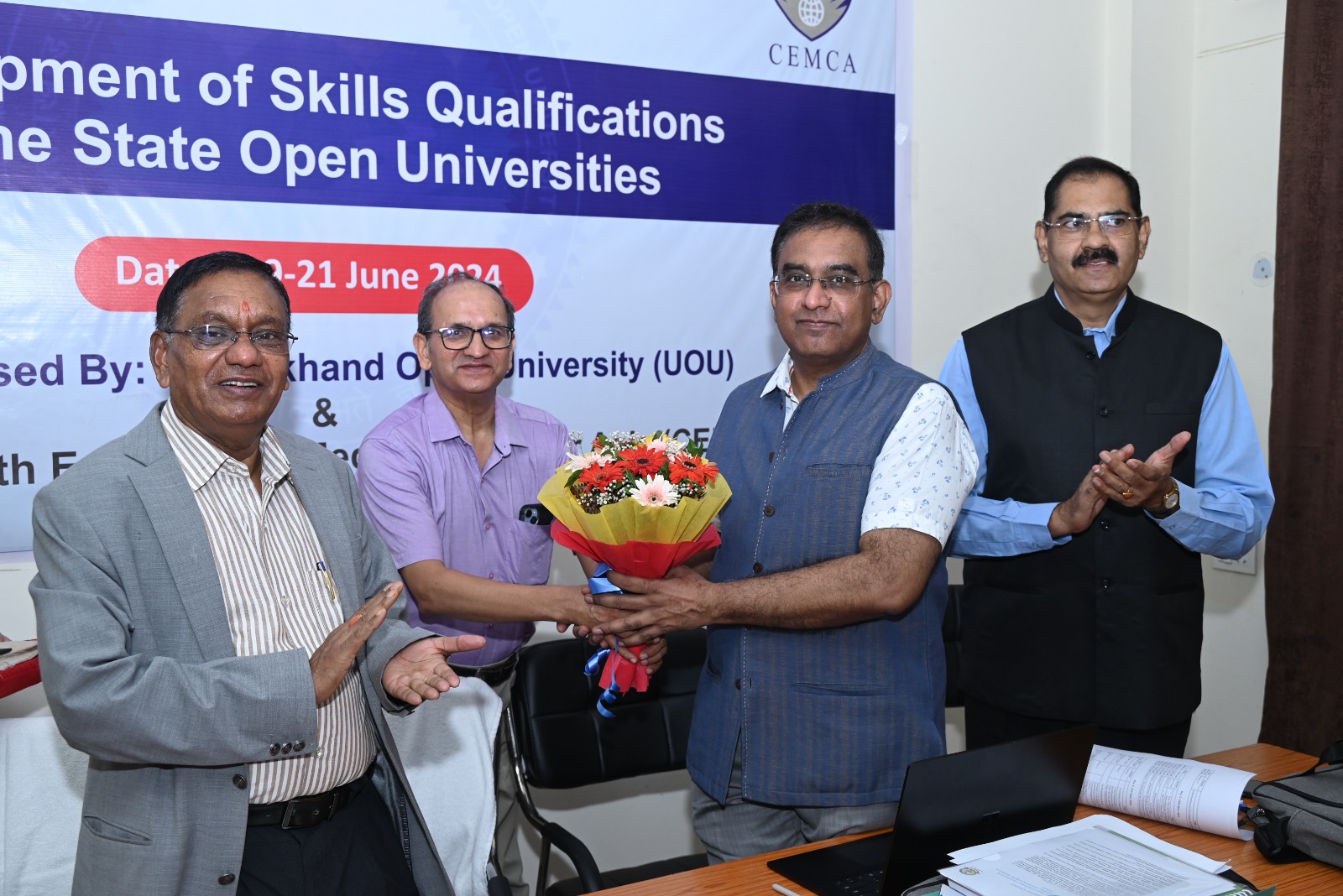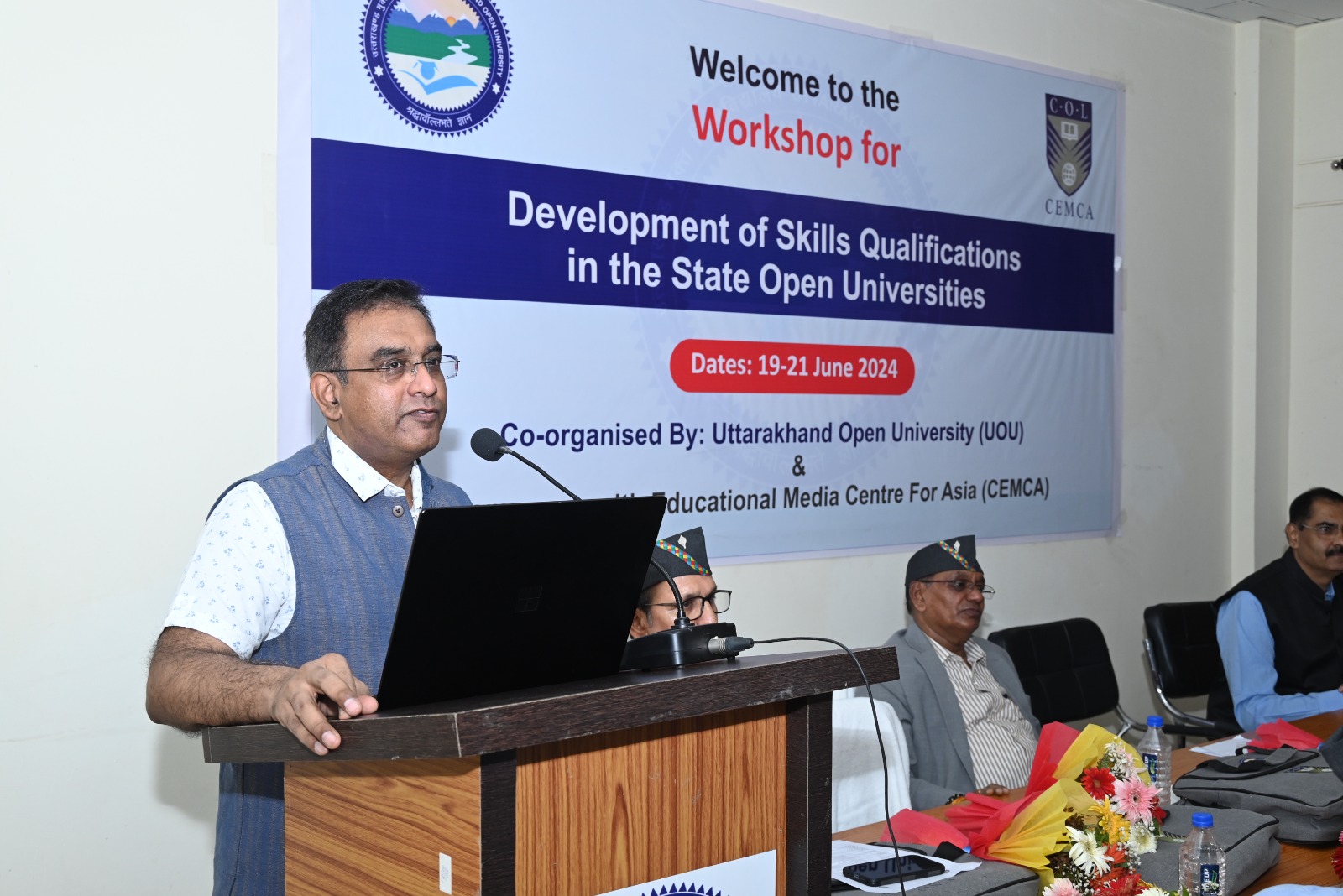Open Universities Poised to Integrate Skill Courses in their Mainstream Academic Programmes
The integration of State Open Universities (OUs) into India's vocational education system took a significant step forward at the recently concluded OU OERfest, co-organised by the Commonwealth Educational Media Centre for Asia (CEMCA) and Dr B.R. Ambedkar Open University (Dr BRAOU). CEMCA played a key role in persuading Dr Nirmaljeet Singh Kalsi, Chairperson of the National Council for Vocational Education and Training (NCVET), to endorse a proposal for OUs to obtain dual status as both awarding and assessment bodies under NCVET.

The envisaged outcome of this initiative was seen as OUs offering short term and long term vocational courses, along with their mainstream academic programmes. It would also allow them to independently assess and certify vocational qualifications, which wouldelevate them to a status comparable with dedicated skill universities, and institutions, and Central and State level government agencies engaged in skilling India’s workforce.
Building on NCVET endorsement, a strategic meeting was held on 9 May 2024, at Kaushal Bhawan, New Delhi. Attended by Vice Chancellors and Directors from 17 State OUs, the meeting focused on integrating skill-based courses into academic programmes. The key facilitators included Dr B. Shadrach, Director of CEMCA, and senior officials from the Ministry of Skill Development and Entrepreneurship (MSDE), Secretary Shri Atul Kumar Tiwari and Dr Kalsi. The discussions emphasised tailoring skill courses to meet local industry demands, ensuring that the programmes developed are relevant and beneficial to regional economic needs.
.jpeg)
The meeting also delved into the prerequisites and documentation required for OUs to attain NCVET’s dual recognition. There was a strong focus on simplifying the application process and providing support to OUs, including streamlining forms, offering consultancy services, and organising online capacity-building sessions for OU staff.

Continuing this momentum, a follow-up workshop was held at Uttarakhand Open University (UOU) from 19 to 21 June 2024. In his virtual address as the Chief Guest, Shri Shailesh Bagauli, Chief Secretary, Directorate of Higher Education, Government of Uttarakhand, stated, "Open Universities have tremendous possibilities and flexibility to provide a variety of courses. By collaborating with the industry sector, they can develop and offer numerous livelihood-generation courses that will greatly benefit the youth."
Professor Om Prakash Singh Negi, VC of UOU, in his inaugural speech, emphasised the significant contribution of OUs to the country's educational landscape, noting that they account for nearly 11 percent of the Gross Enrolment Ratio (GER). He stressed that this positions OUs to play a crucial role in providing skill-based courses that align with the needs of both students and the workforce. Dr B. Shadrach, presiding over the event, highlighted the gathering of 15 OUs, all collaboratively exploring the integration of skill courses into their academic frameworks. He provided the participants with an overview of the workshop agenda.His presentationcentred on several pivotal topics, such as:
1. Dual Recognition by NCVET: Exploring the procedures for OUs to become both awarding and assessment bodies.
2. Future Workforce Development: Merging vocational education with traditional academics to create a comprehensive, skills-oriented education system as envisaged by NEP 2020.
3. National Education Frameworks: Integrating skilling initiatives with national education standards such as the NHEQF, NSQF, RPL, NOS, and NCrF.
4. Blended Learning and RPL: Promoting blended learning models and integrating Recognition of Prior Learning to formally acknowledge skills acquired outside the mainstream education system.
5. Maintaining Autonomy and Compliance: Ensuring adherence to NCVET guidelines for RPL recognition, trainer and assessor training, and blended learning strategies.
6. Qualification Types and Approval: Developing short-term and long-term training programmes through NCVET approval, and maintaining a clear separation between awarding and assessment roles within the OU.
The workshop employed a participatory approach to train the participants on the application process. They received guidance from peers who had already completed the application form. Additionally, they engaged in discussions about the challenges encountered during the process.Theyare optimistic that these initiatives will transform the operational landscape of State OUs, positioning them as pivotal players in developing a skilled and adaptable workforce for India's future.


